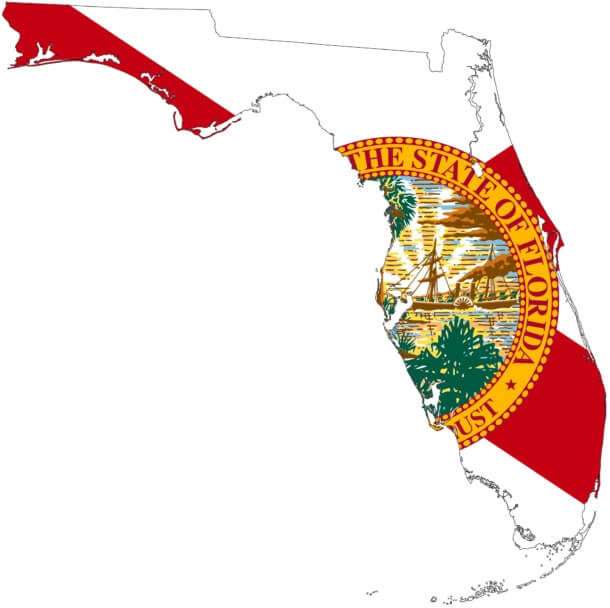The Catalan fight for independence is not how conflicts are fought throughout history, let alone how they are won.
Some movements for national independence have succeeded in history, others have not. Presently, it seems that the Catalan bid is destined to fail. Maybe in the future Catalans will change their strategy and achieve their goal, but at the moment of writing the Catalan independence movement can be described as a storm in a teacup.
We therefore looked at what worked in the past and is missing right now, or what clearly is not working.
1. A bad plan to begin with.
Catalan independence is about claiming sovereignty from Madrid, just to immediately relinquish it to Brussels. If this had been decades ago, before the 1992 Maastricht Treaty, maybe it wouldn’t have mattered. Now, especially after the Brexit vote, the EU leadership has decided to push forward with the European Federalist project, starting possibly with a Eurozone financial minister as proposed by French President Macron.The latter’s plan also includes a Eurozone budget and that’s where the Catalan plan makes even less sense: part of the resentment towards Madrid is because Catalans do not like regional fiscal transfers towards the rest of Spain. Would they like it if fiscal transfers were towards other European regions via Macron’s proposed Eurozone budget?Many
Catalans also resent the “austerity” imposed by Madrid. Yet it’s not Madrid imposing it, it’s Brussels. Yet Catalans want to dump Madrid because of austerity and then join Brussels?
Why leave a political system because of its unnerving centralism just to join one that is shifting towards centralization, even further from the will of the people?
The EU also does not like referenda.Mainly because it tends to be on the losing side. It lost the ones on the “European Constitution” in 2004 in the Netherlands and France. The Constitution was then pragmatically swapped into “Lisbon’s Treaty” with a number of formal changes, but even that one was rejected in a referendum by the Irish. This time, the EU leadership forced a remake, finally succeeding.
More recent examples saw the Greek referendum on austerity in the summer of 2015, where the Greeks rejected the “Troika”, just to be forced into a humiliating surrender; the Dutch referendum on the association treaty with Ukraine, which also rejected the agreement; and the already mentioned one in the UK on the European Union membership. The EU’s track record in referenda is poor at best, thus it’s no surprise that EU leaders distrust direct democracy. Indeed, the European Commission through the agency of its President Juncker, refused to support the Catalan bid, fearing an opening of Pandora’s box and further political fragmentation, that would allow anyone to leave political systems (including the EU) at will. One Brexit was enough.
The EU can’t also let Catalonia go without incurring needless risks; nor can Spain. As we explained previously, Catalan independence could spark a second Eurozone debt crisis.
Catalan nationalists chose to overlook the centralist, pro-austerity and anti-direct democracy nature of the current European Union.A bit too much to be ignored.
2. Inconclusive leadership.
The now former Catalan President Puigdemont is a champion of missing opportunities. If there ever was a chance to succeed, it was right after the referendum, regardless of its democratic credibility, when the moral was high and there was a momentum of political support. Puigdemont flinched. His first speech after the referendum left many supporters confused. He then signed a declaration of independence, just to suspend it within seconds.
Can anyone imagine the Founding Fathers of the United States of America doing the same? Or the Greek ones after the war with the Ottoman Empire?
When Puigdemont finally decided to go forward, it was too late. He had missed his date with history. There might not be another one.
3. Gun-free society.
American supporters of the Second Amendment will love this one. It is not necessarily an endorsement, but a historical observation. The former claim to fight against centralism just like their ancestors fought against the King of England. Catalans want to fight against Castilian centralism and the King of Spain (independent Catalonia would be a republic).
The irony is that a sizeable portion of Catalan nationalists within the Catalan parliament are left-of-the-centre progressives.We wonder thus if Catalan progressives now feel that the US Second Amendment is still a “relic of the past” and similarly shun the need for a “well regulated militia” against an oppressive government, like American progressives do.
Looking at historical precedents, why are the French still celebrating the “Bastille Day” as a symbol of their revolution? The fortress didn’t serve only as a prison, it was also an armory.
Catalonia also lacks its own army, while it can rely on its own police force, the “Mossos d’Esquarda”. Not enough to stop the Spanish forces to regain control of the situation with ease.
4. Lack of international recognition or foreign support.
We once again look at past examples: the French fought on the side of the American revolutionaries against the British; the British and the Russians fought on the side of the Greek in 1821. More recent examples, the US backed Slovenia, Bosnia, Croatia, Kosovo and Montenegro in the successive splits from Serbia-dominated Yugoslavia. Similarly the US is backing the Kurdish ambition in Syria, while the Russians backed the Crimeans in their secession from Ukraine.
No one backed Catalonia. Nor has anyone so far recognized its independence. Foreign backing generally comes from powers interested in destabilizing the country facing a secessionist movement. No one seems to be interested in destabilizing Spain right now.
Foreign support often provides the weaponry for the insurgents to succeed in overthrowing the oppressors; should a civil war start in Catalonia and should a foreign power start to provide weapons to the Catalan insurgents, the Spanish government could be forced to let Catalonia go or fight an extremely costly war. However, we are not at this point.
Catalans put their faith in the EU, but it was misguided if not plainly delusional as discussed previously.
Continue: Why The Catalan Independence Movement Is Failing | Zero Hedge




